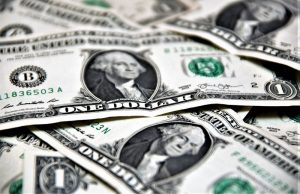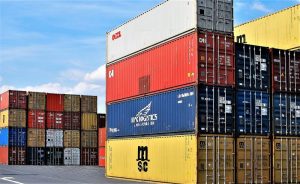Perfect competition
Perfect competition that occurs within a given market, is the one that happens when none of the agents participating within the market can exert any kind of influence on the price of a given product or service, this means that sellers and buyers are price-accepting. It is a type of market in which there are a large number of producers for the same homogeneous product or service, where the demand curve is very accessible and changing and the market price originates from the interaction between suppliers and demanders.
What is perfect competition?
Perfect competition is the type of competition that occurs in markets or in a given market in which the agents participating in this market, may exert an influence on the product or goods prices, which puts sellers and buyers in a price-accepting position.
When we talk about perfect competition, we are referring to an economic situation that is almost ideal, and which at the same time, is very unlikely to happen in reality because in the real world, there is no such simple, perfect and ideal economy. However, the perfect economy can be a very useful tool in the economic study of markets that, in some cases, may come to look like, but the truth is that there are very few types of markets that can be considered total or perfectly competitive. In some economic aspects, we can observe some types of similar markets in the agricultural sector, in auctions or in the raw materials market, to a lesser extent.
Characteristics of perfect competition
- The companies that make it up are price-accepting: It means that many of the companies that are competing in the market confront a significant number of competitors Each included company can sell a sufficiently small part of its total production, since its decisions do not influence the market price, and are therefore, considered as price-accepting. This characteristic applies to consumers and businesses.
- Perfect competition enjoys adequate product homogeneity, i.e. the products are the same or at least, they have very similar characteristics. Thus, no company can charge more than another because they could lose their business due to competition. This characteristic is very important because it guarantees the existence of a single price in the market, determined by supply and demand.
- Freedom of entry and exit that guarantees that there is a different cost that hinders a new company to enter an industry and produce, or to leave without obtaining any type of benefits. Buyers have the facility to change suppliers without problems and suppliers can easily enter or leave the market, and this generates competition between companies.
- There is true transparency within the market, because market participants, regardless of whether they are buyers or sellers, know the market conditions and have sufficient information about the prices and the product quality being sold.
Perfect competition assumptions
- Individualism. It is in charge of conceiving the social aspect as a juxtaposition of individual interests and seeks to obtain the purposes of individual origin in order to achieve the best possible state for a community.
- Rational behavior. An agent will be rational when the following requirements are fulfilled: to pursue goals that are coherent among themselves and to use means to reach those ends in an adequate way.
- Selfish conduct. The agents will take into account only the decisions that grant them a greater utility in an individual way, regardless of the decisions that other people make or the effects that these may cause.
- Maximizing strategy. Agents face a problem of maximization under two different types of restrictions: maximization of benefit to producers and maximization for consumers.
Advantages of perfect competition
- There are many sellers and buyers who want to sell or get a certain product.
- The products are homogenous, which means that there is no difference between them no matter which company is offering them.
- Buyers and sellers have good information as it is an important aspect for perfect competition.
- You can sell and buy freely between sellers and buyers, so they have freedom of movement.
Disadvantages
- Neither sellers nor buyers have control over the selling price as they do not influence the market
- Not much time is spent on developing marketing strategies, market research, developing new products or fixing prices as they do not play any important role.
Examples of perfect competition
Cimaplas Group (Mexico)
They produce plastic bags, brooms, cleaning supplies and more. They offer the products at the same price; the competition is quite strong, and the suppliers are price-accepting because there is freedom of access. If the sellers make a profit, prices go down so that, they can compensate the money invested in the companies.
Estebana (Colombia)
This is one of the examples of perfect competition that involves the great offer of cleaning products and general cleaning products for home that we can see in all shops and trades. In this way, the products become market products of perfect competition because there is freedom of offer among the producers, because there is facilities for offering and advertising. Some recognized brands are: Fab, Ace, Soflan, Suavitel, Super muscle, Ariel among many others.
How to cite this article?
Briceño V., Gabriela. (2019). Perfect competition. Recovered on 4 January, 2025, de Euston96: https://www.euston96.com/en/perfect-competition/










